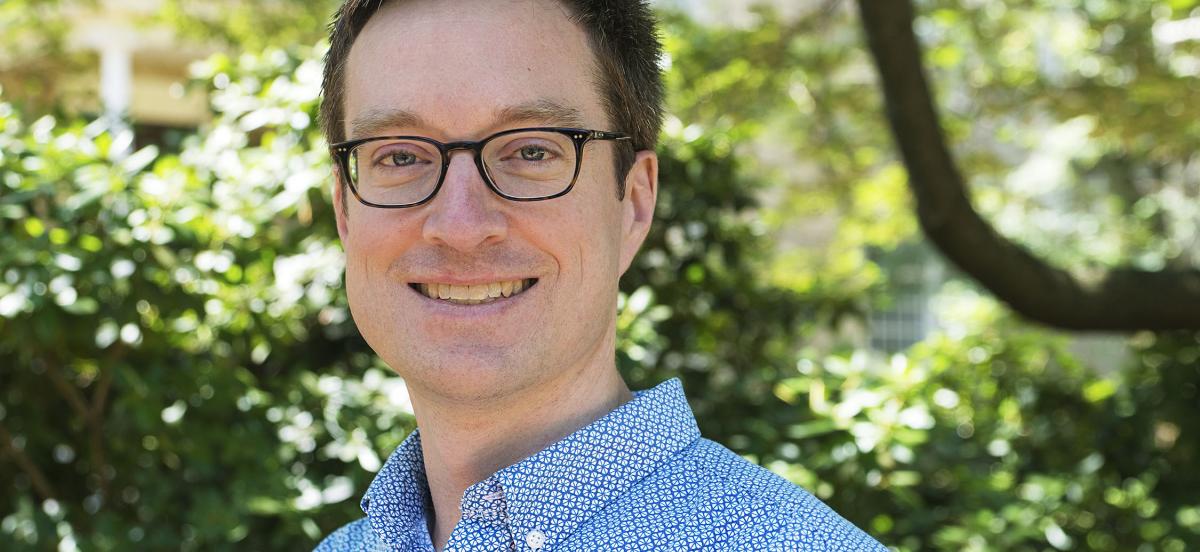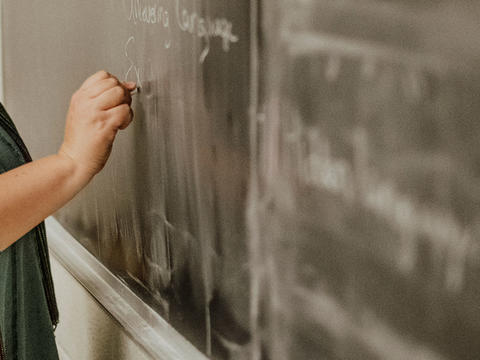Casey Londergan Honored With Henry Dreyfus Teacher-Scholar Award

Casey Londergan
Photo by Patrick Montero
Details
The associate professor is the fourth current member of the chemistry faculty to receive this award, which recognizes accomplishment in scholarly research with undergraduates and a commitment to teaching
Associate Professor of Chemistry Casey Londergan is one of only seven recipients of the 2015 Henry Dreyfus Teacher-Scholar Award, culled from nominated early-stage faculty members from institutions across the country. This award, which provides an unrestricted research grant of $60,000 to recipients, recognizes accomplishments in scholarly research with undergraduates and a commitment to teaching.
"This is a great honor for me and a strong validation of the value that I place on both my research and my teaching," says Londergan. "Haverford provides an atmosphere in which I can mix my teaching and my scholarship and use one to feed back directly into the other. I view mentoring students in research, and providing other students direct access to current scientific work, as central parts of my teaching, and I also regularly use student questions and ideas to motivate new projects and research directions. This award recognizes and supports that hybrid approach."
Londergan is the fourth current member of the chemistry department to receive this award, which is based on institutional nominations. He was preceded by Associate Professor Joshua Schrier, who won last year, Associate Professor Alexander Norquist, and Professor Karin Akerfeldt.
"That is very rare in departments at our kind of institution and says something wonderful about how our department manages to very effectively mix teaching and scholarship," says Londergan.
The Dreyfus Teacher-Scholar Award winner will use his grant to fund student research stipends in his lab for a project called "Development of Site-Specific Vibrational Probes of Dynamic Protein Structure," which applies a combination of chemistry and optical techniques to provide new ways of viewing and understanding the very flexible and diverse shapes that proteins adopt as they do their biological jobs. Some funding will also be used to enhance the chemistry department's "flipped classroom" and non-lecture teaching methods, which are enabled by tablet and video technology, in a few courses.
—Rebecca Raber



